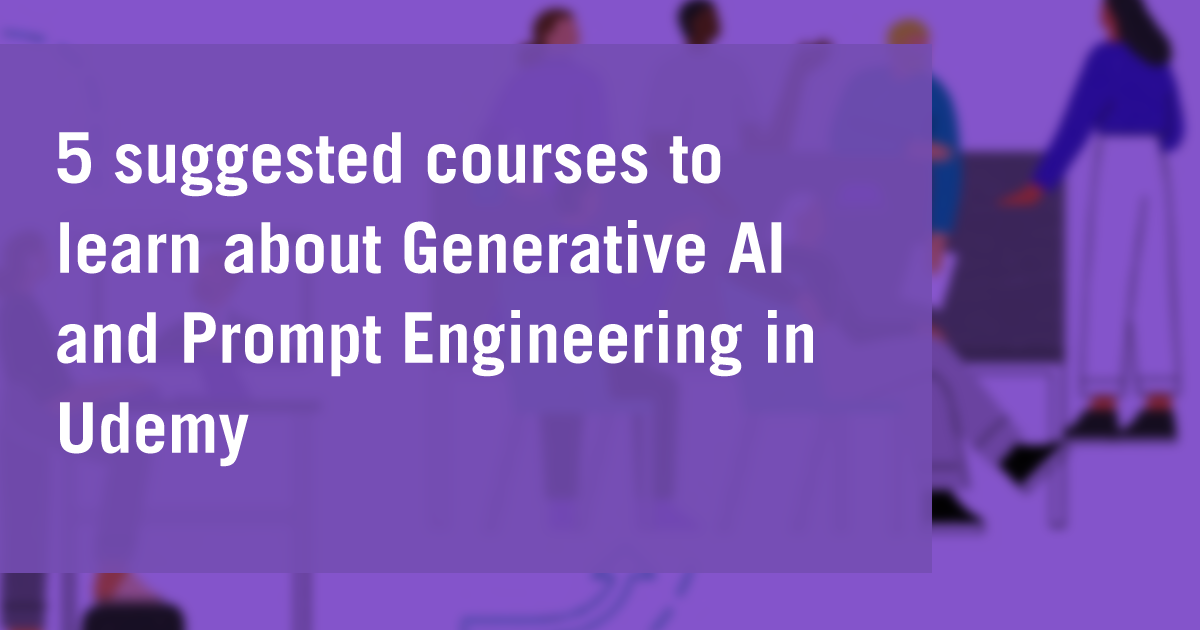
By Aaron Tay, Lead, Data Services
Heard about the term prompt engineering and want to learn what the fuss it is about? Feeling worried about the rise of generative AI and want to keep up?
SMU Libraries have you covered. We recently started providing access to Udemy Business which is now enhanced with many courses suitable for all levels from beginner to advanced users who want to keep up with the AI trend.
Here are some of my recommendations:
- Transform Your Business Life: Master Prompt Engineering with ChatGPT to Boost Your Productivity (2 hours)– designed for non-technical, none-coders – the basics of prompt engineering are covered in just 2 hours of videos. Besides the usual prompts for summarization, text classification tasks there are prompt suggestions for ChatGPT acting as a UX assistant, creating personas etc.
Learning curve is still too steep? Try Introduction to Prompt Engineering for Generative AI from Linkedin Learning
- Make Python Programs with ChatGPT with Zero Coding Skills (3 hours)- This is an intriguing course that promises you to learn how to make Python Programs without coding. It is still somewhat technical because you will need to be comfortable setting up the Python environment and running it etc.
- ChatGPT - Learn ChatGPT Prompt Engineering, ChatGPT Plus, Chat GPT, ChatGPT 4, Chat-GPT, Generative AI from OpenAI (4 hours) - A slightly more advanced course on prompt engineering, this takes you through all the use cases from basic to advanced techniques to help with coding. It will also cover use of OpenAI’s APIs via the playground.
- The Complete Prompt Engineering for AI Bootcamp (2023) - (6 hours). A very complete course it covers not just the popular OpenAI models like ChatGPT as well as covers lightly other models like Google’s Bard and Anthropic Claude models. It also includes content for text to image generators like DALLE2, Midjourney, Stable Diffusion etc. For intermediate level students, once you go beyond the basic techniques, you should be comfortable running code in Jupyter notebook environments as many of the advanced prompting techniques would be too onerous to run manually and require you to go beyond using the web interface by using scripts to automate the prompts.
- Natural Language Processing: NLP With Transformers in Python (11.5 hours) - The success of generative AI systems like ChatGPT reflects the rapid improvement in the field of NLP (Natural Language Processing). Current state of the art in NLP focuses on a particular network architecture – the transformer model. This course provides an overview of the developments in the field, with a particular emphasis on how transformer models like BERT and GPT work. Learn to use state of art models like BERT to do tasks like text sentiment analysis, Named Entity Recognition (NER) and even learn to create a semantic search system with Haystack/Elastic search for Question and answering tasks. Only for users comfortable with coding.
Machine learning and generative AI is hot now! Udemy courses provide a convenient, self-paced way to keep up. Have fun!